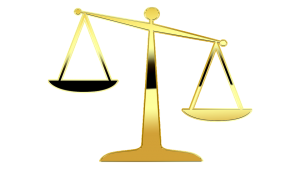Announcing - New experts and new fields of expertise.
Conclaves - An introduction to Conclaves (esp in the NSW District Court)
Standard Orders for Hearing
The District Court of NSW “Standard Orders for Hearing” published 11 January 2016 include clauses 6-9 “Concurrent Evidence”.
They give effect to the Joint Conferences and Joint Report (“Conclaves”) and Concurrent Evidence provisions in UCPR 31.24-26 and make them the default position if expert witnesses are to give oral evidence. Joint Conferences or Conclaves and Joint Reports happen before the trial. Concurrent Evidence happens at the trial but is largely based on the Joint Conferences or Conclaves and Joint Reports.

Conclaves and Joint Reports
In NSW the Court has the power to direct expert witnesses to confer and endeavour to reach agreement (Joint Conference or Conclave) and to prepare a joint report specifying matters agreed, not agreed and reasons for any disagreement (Joint Report). The conference can be held with just the experts, with the experts and a “facilitator”, or with the legal
representatives and parties also attending. It is now highly unusual for the Court to permit legal representatives and parties to attend a conclave.
What is the effect of the Joint Report?
In practice, if not strictly at law, the Joint Reports binds the parties. This is because the Joint Report may be tendered at trial as evidence of any matters agreed. This means that many of the crucial expert issues that would otherwise be determined at trial are decided by the experts at the conclave, and usually in the absence of the parties. You may find that your client has lost the case due to a concession that was made without you knowing the circumstances in which the concession was made. Except by leave, rarely granted, your client will not be allowed to adduce evidence from any other expert on the issues dealt with in the Joint Report.
This means that a Conclave is effectively a preliminary determination of (many) expert issues prior to trial, but it is done without knowledge of what evidence will be admitted or without clarity as to the ultimate factual position, and usually without the presence of the parties or their lawyers (or a Judge) and in circumstances where your expert can effectively win or lose your client’s case.
What triggers the Conclave?
Clause 6 of the Standard Orders says that where experts whose fields of expertise are the same (or substantially the same) have “been required to give oral evidence” they should give heir evidence concurrently. In the District Court experts are “required” to give oral evidence by the other party giving notice at least 28 days prior to the Hearing and issuing a subpoena (UCPR 31.30(3)).
So it is the parties decision to require each others’ experts “to give oral evidence” that triggers clause 9 and the then mandatory requirements for a Conclave and then a Joint Report.
Do you really want to pull the trigger?
The cost of a Conclave, it’s risks, the time it takes to organise, and the time it takes to obtain a Joint Report from the experts, mean that the decision needs to be made well before the trial, not 28 days.
You may even want to consult with your opponents about how the issue is to be handled before subpoenas issue. The timing of a Conclave may affect settlement offers and negotiations. Although it will save the Court time and will reduce the costs of the trial in the cases that run to the point where oral expert evidence is given at the trial, in cases that settle before that point a Conclave (or Conclaves) and Joint Report will generally make the process more expensive.
How do I approach a Conclave? First, use a facilitator.
UCPR 31.24(2) refers to “a facilitator… a person independent of the parties…who may or may not be an expert in…the matters in issue.”
We strongly recommend a facilitator who is an experienced lawyer and who understands the difference between mediation (compromise and “getting to yes”) and the independent facilitation of an expert Conclave to identify areas of agreement and genuine disagreement.
The authors’ own experiences, the results of an extensive survey of experienced expert witnesses undertaken by Expert Experts, and the consistent feedback from solicitors provided to the authors at the end a dozen or more seminars on Conclaves, is that the overwhelming majority of Conclaves that have experienced facilitators providing a framework achieve sensible results, and that the cost of the facilitator is more than saved by the efficiency of the process. On the other hand the overwhelming majority of Conclaves that go off the rails (which is not uncommon) do not have facilitators.
It’s affordable insurance.
What else should I do?
As space is limited, we cannot fully explore the process of preparing for a conclave here. However, prepare as if it is a preliminary Hearing of discrete Expert Evidence issues and you won’t go far wrong.
About the Authors
Eugene Romaniuk SC, Bruce Smith and Miiko Kumar are Barristers at Jack Shand Chambers.
This article is a summary of a Paper on Conclaves prepared and delivered by them for the Law Society of NSW.
Latest Items
Newsletter
Categories
Contact us at answers@expertexperts.com.au or give us a call 1300 72 66 55
Expert Experts sources experts in all disciplines for lawyers, insurers, government and industry across Australia

Since 2001 Expert Experts have been helping clients across Australia find the right expert to address their evidentiary requirements across many areas of law.
Let us help you save time and cost.
Latest Posts
Paul Heath appointed Expert Experts new CEO
Conclaves - An introduction to Conclaves (esp in the NSW District Court)
Useful Links
Contact Details
World Square 2004, NSW
Phone: 1300 72 66 55
Fax: 1300 72 66 33
Email: answers@expertexperts.com.au
